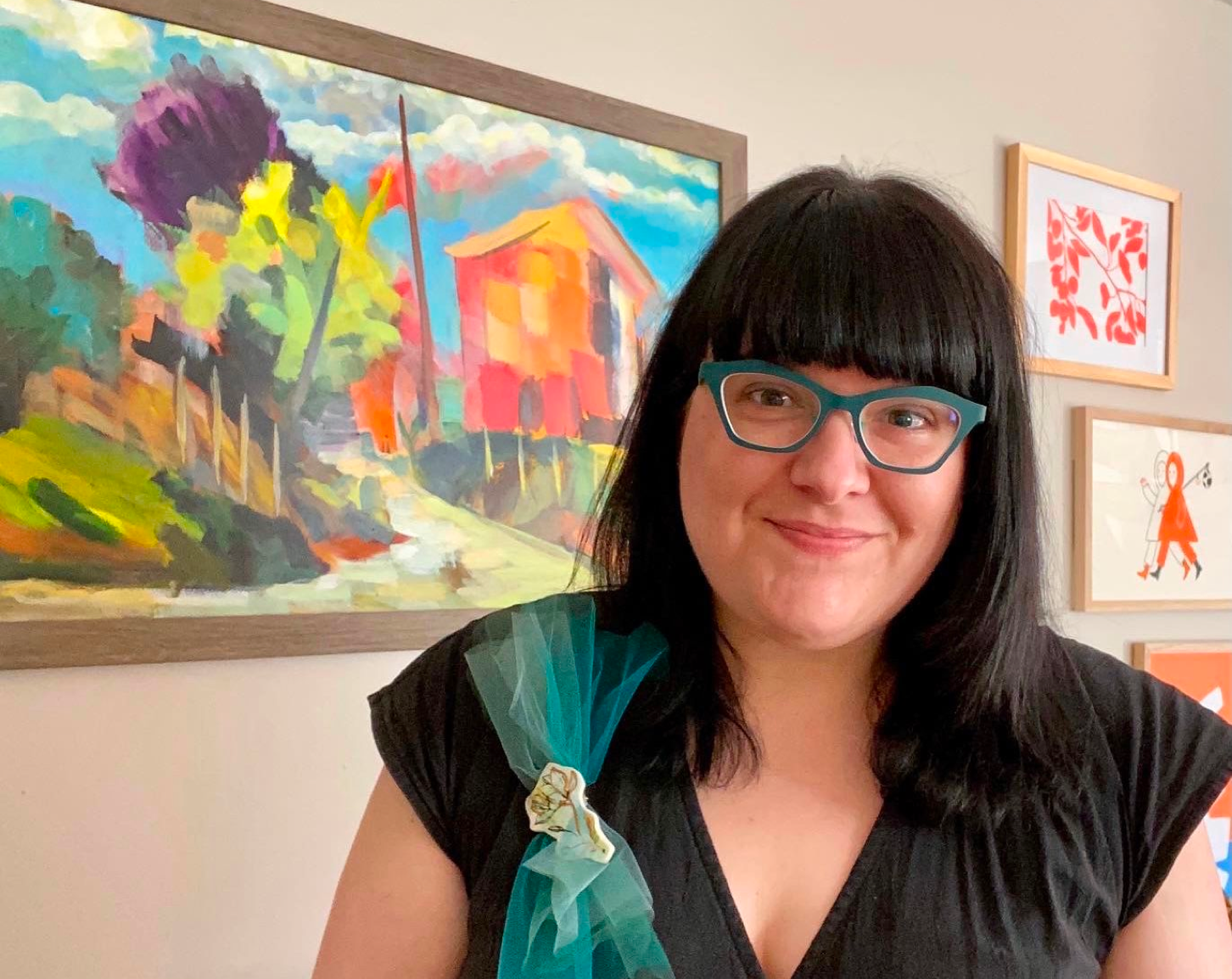A 20-year journey of health research: A ‘whole-person’ approach
10 May 2021

Photo courtesy of Dr. Kelli Stajduhar

Dr. Kelli Stajduhar: A ‘whole-person’ approach to palliative care and peer review
“We were trying to save them without acknowledging the devastation to families and the people themselves.”
Dr. Kelli Stajduhar’s focus on human-centred and community-driven care began during her nursing career in Manitoba, where she was working in a highly acute unit in a large, inner city teaching hospital that handled all the solid organ transplants in the province. In this role, and in her subsequent work during the harrowing AIDS epidemic, Kelli saw many patients who weren’t having their pain managed or even acknowledged.
In BC, only 15 to 30 per cent of people who could benefit from palliative care and support systems have access to these specialized services.
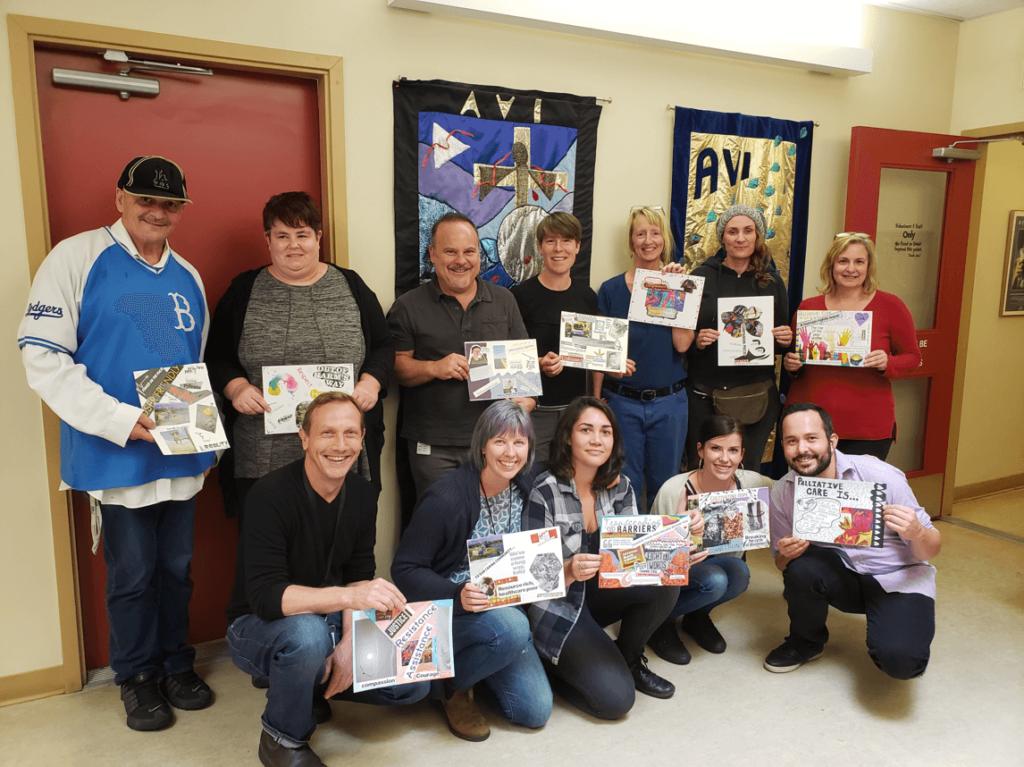
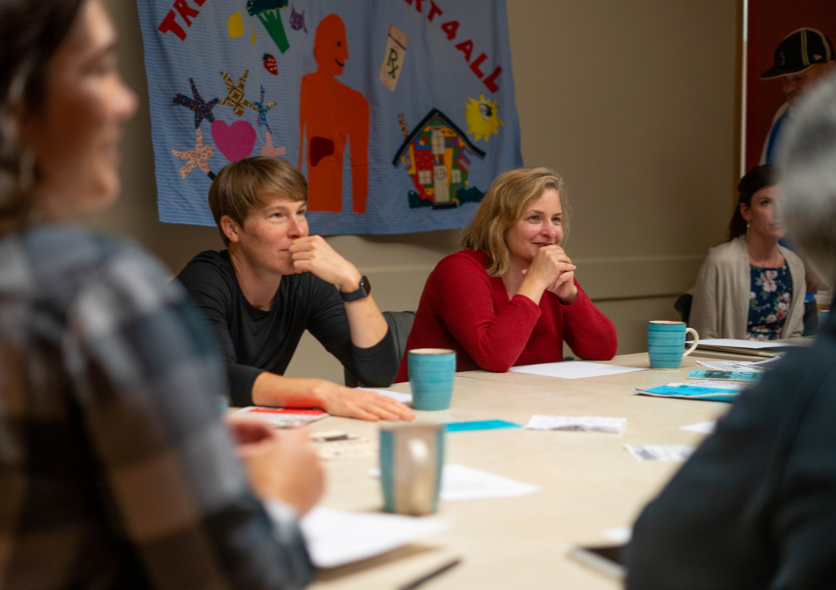
Since then, this six-time award recipient of MSFHR funding has focused on putting the “care” back into palliative care and policy for people with complex, terminal illnesses. In BC, only 15 to 30 percent of people who could benefit from palliative care and support systems have access to these specialized services. The traditional model of palliative care was born out of a cancer model and is focused on end-of-life services for terminal cancer patients, which may not be appropriate for all persons facing life-limiting chronic illnesses (citation). Applying an equity lens and a strong focus on community and vulnerable populations, Kelli’s research sets out to reform this model to provide and improve palliative care in multiple settings, including for long-term care clients and hard-to-reach, homeless populations.
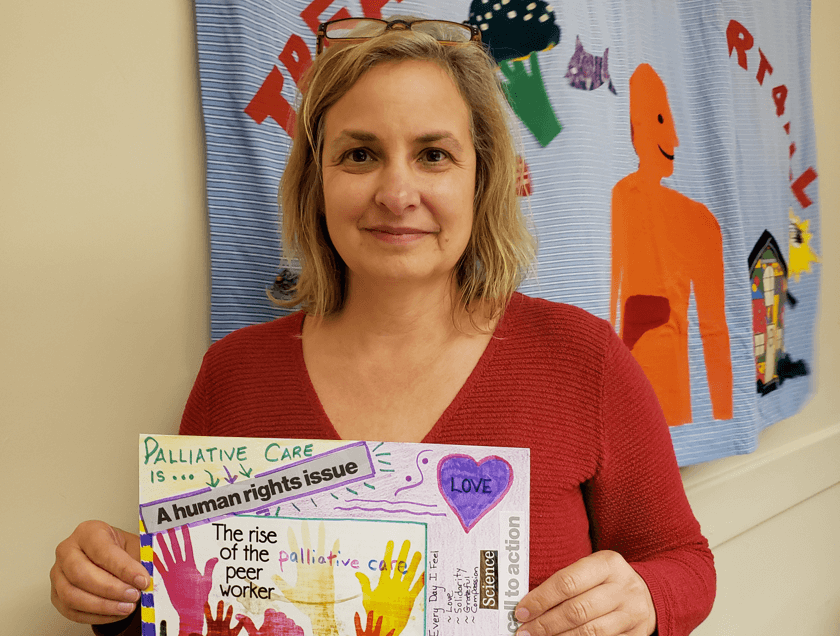
“My work has always been rooted in a commonsensical way of coming together to treat people who are most vulnerable, in ways that are loving and respectful and that show them we care. What is the ‘care’ in health care if we don’t show people we care?” Kelli says.
Kelli credits MSFHR’s funding awards as the catalyst for launching her career and the careers of other researchers. She was among the first cohort to receive Research Trainee awards in 2001. In the years since, Kelli has volunteered her time serving in the roles of both reviewer and chair on MSFHR peer review panels. Her focus on people’s well-being extends to how she approaches application evaluations, as she takes care to acknowledge the many roles that women researchers, in particular, play in their own lives and in society.
“When I chair peer review panels for MSFHR, there will always be conversations about recognizing different circumstances,” she says. “The most powerful thing is when a funding agency recognizes that maybe I can’t have as much productivity as somebody who doesn’t have dual responsibilities, because I’m probably playing an even more important role in the care of my family and children. We’re academics, we’re researchers, and we’re also mothers taking on domestic responsibilities.”
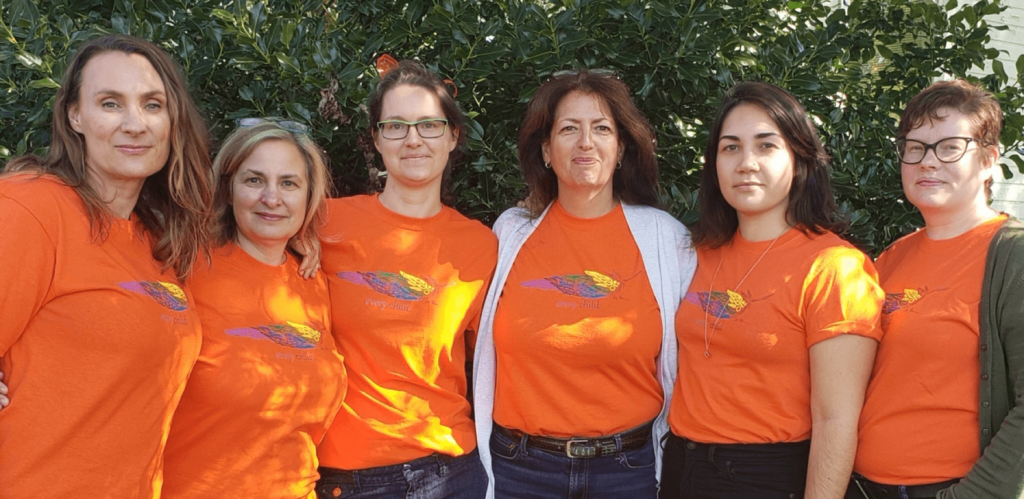
In reflecting on the past 20 years, Kelli notes that as women have more career opportunities, she’s seeing a greater understanding that women have multiple roles to fill in their lives — and that organizations, including MSFHR, are placing greater value on equity and diversity in their funding programs. For Kelli, supporting underserved populations is a familiar road, and, much like her research, a cause she looks forward to continuing to champion.
“The most powerful thing is when a funding agency recognizes that maybe I can’t have as much productivity as somebody who doesn’t have dual responsibilities, because I’m probably playing an even more important role in the care of my family and children.”
From 2011 to 2018, funded by MSFHR, Kelli and her colleague Carolyn Tayler brought together collaborators from across the province for the Initiative for a Palliative Approach in Nursing: Evidence and Leadership (iPANEL) with the goal of advancing the further integration of a palliative approach into the health care system in British Columbia. The studies that came out of the iPANEL Initiative ultimately informed nurses and clinical practices on how to provide palliative care to people who are dying in non-specialized care facilities, such as residential care, and at home.
Kelli has also led national initiatives such as Seniors — Adding Life to Years (SALTY), a four-year research project that ran from 2016 to 2020, which aimed to add quality to late life for people living in long-term care, and to support family, friends, volunteers and care workers engage in their care.
Launched in 2019, Kelli’s latest project, the Palliative Outreach Resource Team (PORT), is a culmination of a life-long focus on bringing a whole-person approach to care. The PORT program focuses on serving individuals in Victoria who have been unable to access palliative services as a result of precarious housing, racism, isolation, homelessness, poverty and stigma.
In addition, Kelli’s work on behalf of the Equitable Access to Care Team at the University of Victoria’s Institute on Aging & Lifelong Health examined actions to improve access to and quality of end-of-life care for homeless and barely housed people.
Learn more about Kelli’s work:
Too Little, Too Late: How We Fail Vulnerable Canadians as They Die and What to Do About It (November 2018)
Seniors — Adding Life to Years (SALTY)
Initiative for a Palliative Approach in Nursing: Evidence and Leadership (iPANEL)
Palliative Outreach Resource Team (PORT)
MSFHR awards:
2010 MSFHR BCNRI Investigative Team Award: Impacts of a Palliative Approach for Nursing (IPAN)
2016 MSFHR Match Funding: Seniors — Adding Life to Years (SALTY)





